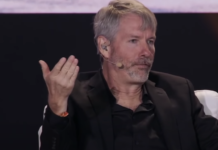
While Hollywood studios and unions representing actors and writers continue negotiations around the use of artificial intelligence in movies and television, a popular Indian actor has won a landmark decision against websites that featured AI-generated deepfakes using his likeness.
Anil Kapoor, best known to Western audiences for roles in “Slumdog Millionaire,” “Mission: Impossible – Ghost Protocol,” and the show “24,” Kapoor won a judgment in the Delhi high court against the unauthorized use of his name, image, voice, and personality, Variety reported.
The high court acknowledged Kapoor’s “personality rights” and prohibited “all offenders from misusing his personality attributes without his permission in any manner.” Kapoor said he filed the lawsuit after finding AI-generated deepfake content using his likeness, voice, and catchphrases.
“The court can’t turn a blind eye to such misuse of a personality’s name and other elements, and dilution [and] tarnishment are all actionable torts which Kapoor would have to be protected against,” Justice Prathiba Singh reportedly said in the ruling, adding that the creation of ringtone and GIF images for commercial gains is a misuse.
Although the lawsuit did not name the creators of the Kapoor deepfakes, it reportedly was filed against 16 defendants. In the lawsuit, attorneys for Kapoor said the actor’s likeness and voice had been used to create GIFs, emojis, ringtones, and even faked footage of sexual encounters.
In awarding Kapoor the judgment, the court also ordered domain registrar sites, including GoDaddy, to takedown two websites, anilkapoor.net, and anilkapoor.com, that were named in the lawsuit, according to The Indian Express.
“The [links] will be taken down immediately by all Internet service providers,” Justice Singh reportedly said, adding that Indian agencies “shall issue blocking orders in respect of all these links and any other link which may upload pornographic videos in respect of the plaintiff.”
A GoDaddy representative told Decrypt that it does “not comment on specific customer accounts or domain names,” but added, “If we find a customer is in violation of our terms of service, or where we receive a legal order, we will take appropriate action.
Kapoor spoke with Variety following the verdict.
“I’m very happy with this court order, which has come in my favor, and I think it’s very progressive and great for not only me but for other actors also,” he said, specifically citing “AI technology” in his comments. Kapoor added that in future cases, he can simply “send a court order and injunction and they have to pull it down.”
“It’s not only for me,” Kapoor added about the court action. “Today, I’m there to protect myself, but when I’m not there, the family should have the right to protect my [personality] and gain from it in the future.”
The court case highlights the tension between advancements in AI technology and individual rights, which has rocked Hollywood in recent months.
Using computers to manipulate images and video is not new. Still, with the rise of generative AI, the ability to easily make realistic copies of people and control what they say and do has become a growing concern for policymakers, corporations, entertainers, and celebrities.
A deepfake is a piece of media digitally manipulated to replace one person’s likeness with another convincingly. One of the most famous examples is the “Deep Tom Cruise” videos by Metaphysic AI co-founder Chris Ume that went viral on social media last year. AI deepfake websites have also been used to create fake interviews with reclusive personalities.
In April, the family of past Formula 1 champion Michael Schumacher threatened to take legal action against a German magazine that used voice AI generator platform Character.AI to create a fake “exclusive” interview with Schumacher.
To fight fire with fire and get ahead of illegal deepfakes, celebrities including Tom Hanks, Octavia Spencer, and Anne Hathaway are reportedly using Metaphysic AI’s platform to create and store the data necessary to train AI to create digital versions of them.
“Because of what’s happened with generative AI, what’s happening in Hollywood, people are increasingly concerned,” Metaphysic AI co-founder and CEO Tom Graham previously told Decrypt. “And to be honest, I feel that that emotion of concern is the right feeling to have.”
Editor’s note: This article was updated after publication to add comment from GoDaddy.








